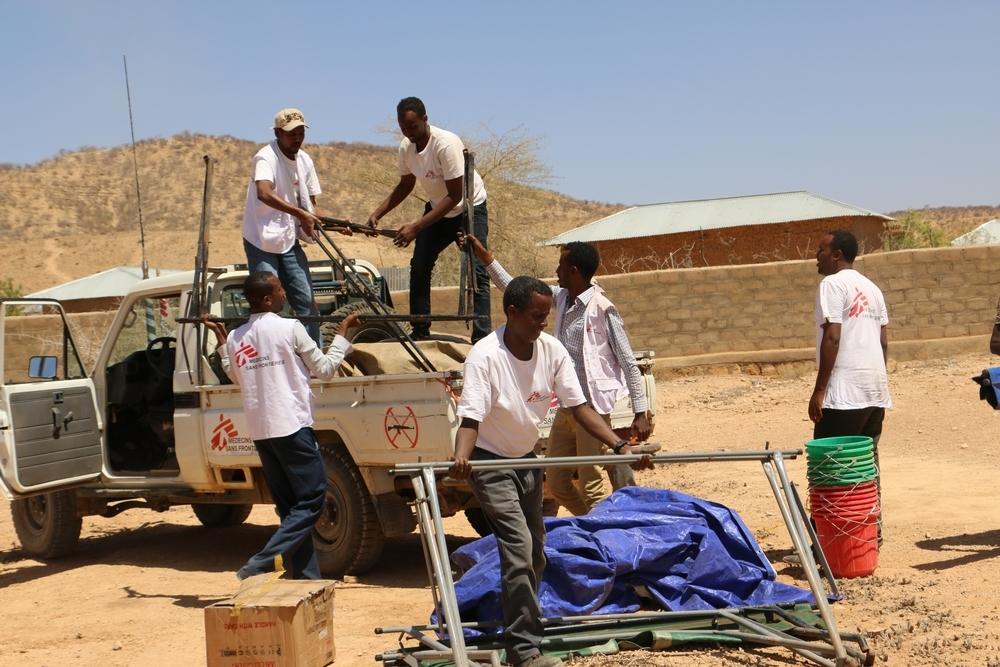Ethiopia: "I have been given a second chance at life by the doctors and nurses"
Not long ago, Habtamu (above) arrived in Kebridehar ready to start a new job in construction. However, two weeks later he fell ill with acute watery diarrhoea (AWD).
When his friends found him, they thought he was dying.
They brought him to the Kebridehar Case Treatment Centre (CTC), managed by Médecins Sans Frontières/Doctors Without Borders (MSF) in Ethiopia's central Somali Region. He now sits up comfortably, smiling in his bed.
The young man has made a steady recovery from what is a potentially fatal condition. "I feel like I have been given a second chance at life by the doctors and nurses here," he says. "But it's not just me. "My whole family depends on the money I can earn, and without it I fear they will be destitute."
The key to treatment is speed
Deadly dehydration
Since March 2016, thousands of cases of AWD have been detected and treated in Ethiopia. AWD spreads through bacteria in stools, especially when sanitary conditions and personal hygiene are poor.
Symptoms of the disease can include nausea, vomiting and diarrhoea, which comes on suddenly and is uncontrollable.
In extreme cases, the loss of fluid can be up to one litre every hour - this can ultimately lead to rapid dehydration and then death, if not treated. Only about one in 10 infected people develop the typical signs and symptoms of AWD, usually within a few days of infection.
A rapid response is key
As a population moves from place to place, AWD can spread rapidly. With a swift increase in the number of cases, public health systems can struggle - an outbreak creates an increased burden on their services.
In partnership with the Regional Health Bureau, we treated over 7,200 cases of AWD in the Somali Region between July 2016 and mid-January 2017.
We travelled quickly to areas where the disease spread, establishing a healthcare presence to stem its advance. "The key to treatment is speed," says Kate Nolan, MSF's country manager for Ethiopia. "If we can get into an area when the first cases are detected, we set up our treatment centres and can reach as many people as needed."
Fortunately, if given the right treatment, most people with AWD can make a rapid recovery.
Preventative measures
We are hoping to contribute towards reducing instances of AWD in Ethiopia through a number of preventative measures, including water, sanitation and education. "Through improving the water and sanitation in certain areas we can have a real impact," says Nolan.
"We can also educate the populations on how to keep their families safe." In order to achieve this, we need the full cooperation of all aid agencies with the capacity to intervene.
MSF in Ethiopia
Médecins Sans Frontières/Doctors Without Borders (MSF) started working in Ethiopia in 1984. Today, our teams fill gaps in healthcare and respond to emergencies affecting local communities, internally displaced people and refugees.

